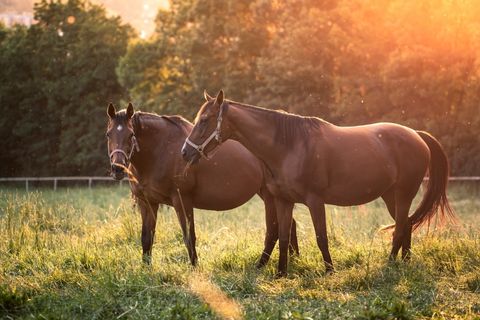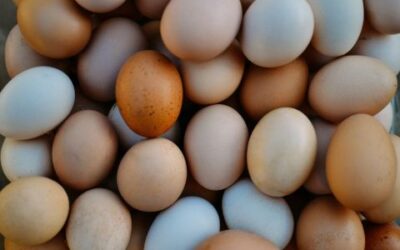
Is your mare currently carrying a new bundle of joy? When you have a foal on the way, there are many dreams literally riding on its back. However, before the foal is even born, it is imperative that you give your colt or filly the best start possible. Proper nutrition is one of the best ways to ensure that your foal will become a happy and thriving adult horse. Keep reading to learn more about why high-quality nutrition for a pregnant mare is so important.
According to The National Research Council (NRC), “During gestation, dietary energy provides not only for the mare’s maintenance but also for deposition of fetal and placental tissues, uterine hypertrophy, mammary development, and fetal maintenance.” This means that it is essential to ensure that your mare is provided with an adequate caloric intake. Calories help the foal to grow and develop in the uterus, ensuring that the foal will be able to thrive once they are born. So, when developing a diet for the mare, you must consider the needs of the growing foal as well.
When a foal is developing in the womb, they receive all of the nutrients from the mare, via the placenta. Josie Coverdale, PhD, associate professor of equine science at Texas A&M University (TAMU), explains, “The long-term influences of maternal nutrition can affect fetal development, and impact placental function and transfer of nutrients to the fetus. The resultant reduction of transfer of nutrients to the fetus may result in slower cell division, which can reduce organ cell number.”
Generally, feed for pregnant mares should contain additional calories throughout their pregnancy—all the time keeping an eye on their body condition score. Typically, this increase can be done by increasing the amount of quality forage in their life. Chopped forage for horses also makes an excellent supplement for a pregnant mare during this stage. If they become too thin or too overweight, you should adjust their intake accordingly.
The needs of the mare change during the last trimester, however. According to Ed Kane, PhD, “During the last 90 days of pregnancy, mares should be fed crude protein at 10%, digestible energy 1.2 Mcal/lb, 0.45% calcium, 0.35% phosphorus, and 1,150 IU/lb vitamin A.” During the last trimester, many equestrians find it beneficial to include alfalfa in their mares’ diets.
If you have any questions regarding proper nutrition for a pregnant mare, we encourage you to reach out to a veterinarian or another equine health professional for guidance.




